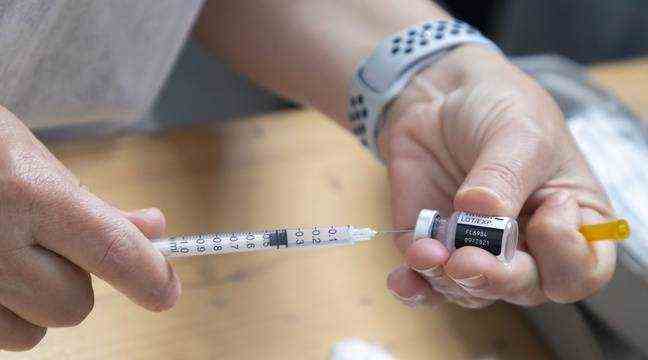“For three deaths avoided, should we accept two inflicted by vaccination? A reader of 20 minutes asked the Fake Off column of 20 minutes to verify information relayed by the conspiracy and anti-vaccination site, France-Soir.
In an article published on June 25, entitled “Risk benefit of vaccination: vaccine policies need to be reviewed”, the former daily criticizes vaccine strategies to limit the spread of Covid-19 and praises a new study, according to which vaccines would cause almost as many deaths as they save lives.
This study, published in the journal Vaccines on June 24, indeed attempted to reassess the benefits and risks of vaccination. For this, the authors calculated the number of people to be vaccinated (NNTV) to save lives from an Israeli observational study. They then crossed these results with the pharmacovigilance database of the Dutch health system, to extract the number of serious side effects as well as the number of deaths attributed to vaccination.
However, for the scientists joined by 20 minutes, “Neither the method, nor the results are correct”. And that, even the review Vaccines acknowledged it a few days after the publication of the study. We take stock.
FAKE OFF
“Everything is to be thrown in this study, I do not understand how such nonsense can be published in a scientific journal which is supposed to have its articles revised”, reacted Professor Mathieu Molimard, head of the pharmacovigilance service at Bordeaux University Hospital. “It’s double smoke effect,” he says. On the one hand, the number of people saved by vaccination is underestimated as much as possible, while, on the other hand, the number of deaths caused by vaccination is maximized. “
Two methodological errors are flagrant in this study, points out the specialist. It is first the calculation of the number of people to be vaccinated (NNTV) to avoid a death that poses a problem. The authors relied on a Israeli observational study which aimed to evaluate the efficacy of Pfizer’s RNA vaccine. From the data from the study, they concluded that 16,000 injections were needed to prevent one death from Covid-19. But the Israeli study was only carried out over six weeks, between December 20, 2020 and January 1, 2021, and at the time, only 3% of the country’s population had been vaccinated.
“Calculating an NNTV from this study does not make sense, as it would be like assuming that the vaccines are no longer effective after six weeks. But today, we know that they protect for at least nine months. The authors therefore underestimated the number of deaths prevented by vaccination, ”explains Mathieu Molimard.
“It’s inconsistency at best, dishonesty at worst”
Second error, and not the least, the authors of the study used the Dutch health system pharmacovigilance database to assess the number of serious side effects and the number of deaths caused by vaccination. According to the study, there would be four deaths for every 100,000 injections.
“It’s incompetence at best, dishonesty at worst. In a pharmacovigilance database, cases of deaths occurring in people who have been vaccinated will be reported, regardless of the link between the vaccine and death. They are reported specifically to be evaluated and to determine if any might be related to the vaccine. To consider them as due to the vaccine is a profound ignorance of the content of these databases ”, points out Antoine Pariente, director of the regional pharmacovigilance center of Bordeaux.
To say, like the authors of the study, “that for three deaths avoided, we must accept two caused by vaccination”, therefore does not make sense. “Such a statistic would also have been visible from the first clinical trials,” notes Antoine Pariente.
Professor Gideon Meyerowitz-Katz, epidemiologist at Sydney-West Hospital (Australia), has also pointed out several methodological errors in a thread posted on Twitter.
This paper was recently published, arguing that vaccines cause as much death as they prevent and so we should stop vaccinating people
I rarely say this, but it is truly awful and should be retracted as soon as possible 1 / n pic.twitter.com/A6vSJsEtn3
– Health Nerd (@GidMK) June 27, 2021
Vaccines suggests an imminent withdrawal of the article
This study was not unanimously approved by Vaccines. Three members of the editorial board of the journal, professors Diane Harper, Florian Krammer and Katie Ewer indeed resigned after the publication of the article, regretting “serious negligence”.
I have resigned from the Editorial Board of @Vaccines_MDPI following the publication of this article. It is grossly negligent and I can’t believe it passed peer-review. I hope it will be retracted. @MDPIOpenAccess @ratripp #AcademicTwitter https://t.co/wIFLJanZQP
– 🕷️The wife scientific🕷️ (@ProfKatieEwer) June 27, 2021
Four days after the publication of the article, on June 28, the scientific journal express their concerns and explained that the study authors’ conclusion was “incorrect and distorted”. “We will provide an update after our investigation is concluded. The authors have been made aware of this expression of concern, ”the journal wrote, suggesting an upcoming retraction of the article.
Finally, for the record, you will be delighted to learn that Professor Harald Walach, one of the three co-authors of the study, was awarded the parody title of “Pseudoscientist of the year” over there
“Society for Critical Thinking” in 2012. The Austrian association then rewarded him for “his incomparable efforts to introduce theories not based on science to the Academy of Medicine”.

